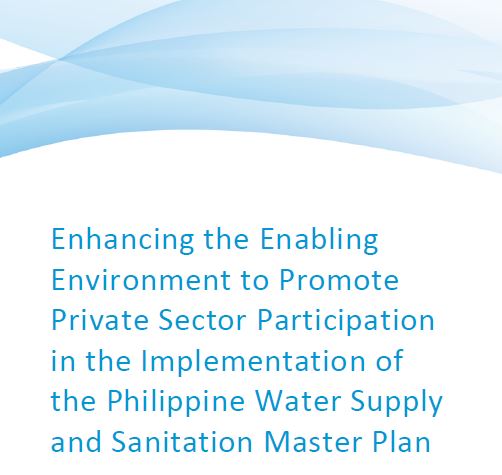Enhancing the Enabling Environment to Promote Private Sector Participation in the Implementation of the Philippine Water Supply and Sanitation Master Plan
The national government is committed to achieve the water supply and sanitation sector (WSS) targets under the Philippine Development Plan (PDP) in 2022 (increase access to safe water supply to 95.16%; basic sanitation to 97.46%) and the Sustainable Development Goal (SDG) 6 in 2030 (universal & equitable access to safe & affordable drinking water; universal access to adequate & equitable sanitation). Globally, the story is the same. A substantial increase in sector financing will be necessary to achieve SDG 6. A change in approach to financing the water sector is necessary to enable the government to finance the PDP and SDG goals: the Unified Financing Framework (UFF). The proposed Water Regulatory Commission (WRC) is meant to consolidate economic regulatory powers of the various institutions involved. PPPs allow mobilization of additional capital resources – not available on the required scale through publicly financed investments – for the improvement and expansion of water service delivery at a faster pace, and the generation of sustainable cash flow from operations; or alternatively, PPPs make it feasible for LGUs and other public agencies to pursue a more reliable water service through outsourcing management of water supply operations. PPPs can bring industry technical and financial expertise required to manage water utilities in a sustainable manner. PPPs should include incentives to improve operational efficiency, so that services match the willingness to pay of LGU residents. The business model allows the expansion of service coverage in a sustainable and equitable manner through partnerships between LGU administrations, the communities and private operators
